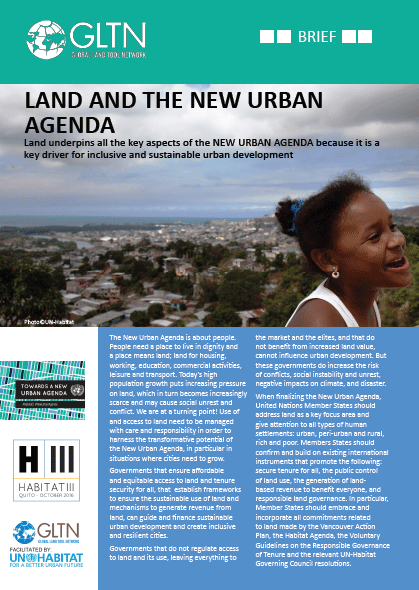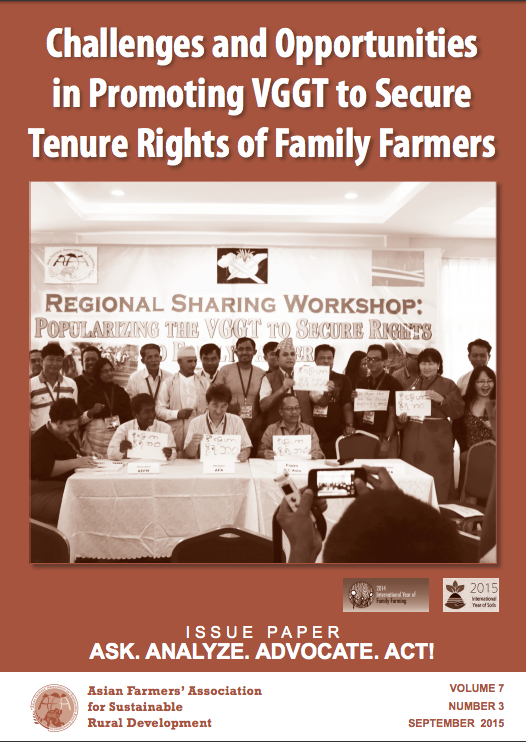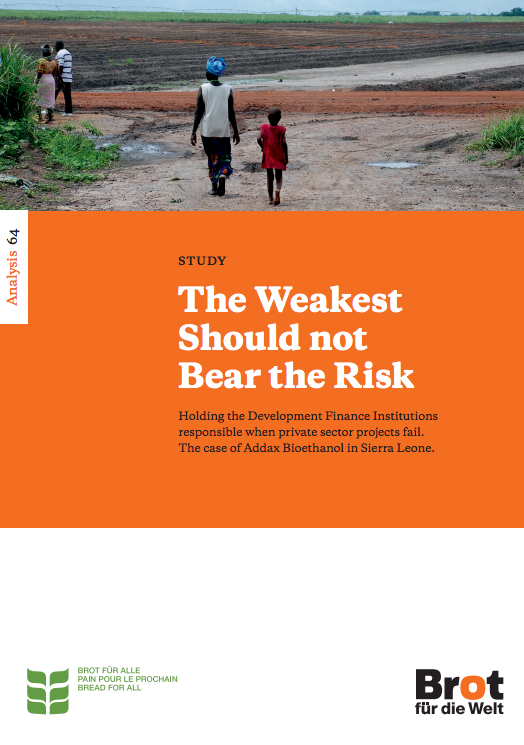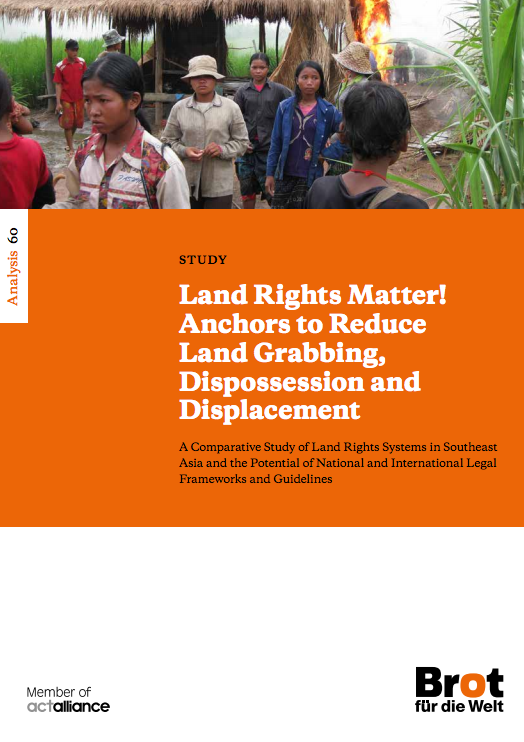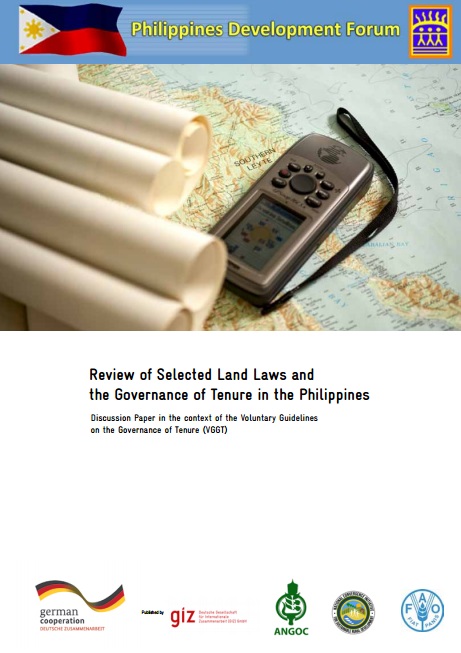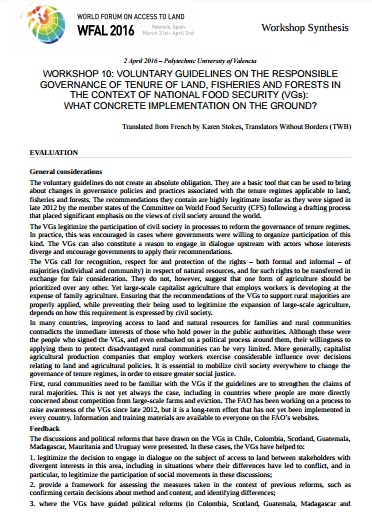Brief: Land and the New Urban Agenda
When finalizing the New Urban Agenda, United Nations Member States should address land as a key focus area and give attention to all types of human settlements: urban, peri-urban and rural, rich and poor. Members States should confirm and build on existing international instruments that promote the following: secure tenure for all, the public control of land use, the generation of land-based revenue to benefit everyone, and responsible land governance.

